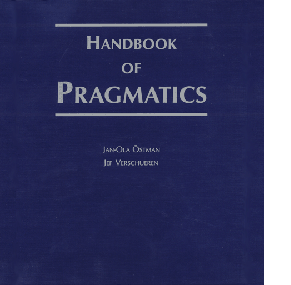Contextualism
 Contextualism is a view about meaning, semantic content and truth-conditions, bearing significant consequences for the characterisation of explicit and implicit content, the decoding/inferring distinction and the semantics/pragmatics interface. According to the traditional perspective in semantics (called “literalism” or “semantic minimalism”), it is possible to attribute truth-conditions to a sentence independently of any context of utterance, i.e. in virtue of its meaning alone. We must then distinguish between the proposition literally expressed by a sentence (“what is said” by the sentence, its literal truth-conditions) and the implicit meaning of the sentence (“what is implicated” by a speaker uttering the sentence). Over the past forty years, however, an increasing number of linguists and philosophers have begun to underline the phenomenon of semantic underdetermination: the encoded meaning of the sentence employed by a speaker underdetermines the proposition explicitly expressed by an utterance of that sentence. According to the extreme version of this perspective – labelled “radical contextualism” – no sentence of a natural language expresses a complete proposition, or has fixed truth-conditions, even when unambiguous and devoid of indexicals. A sentence expresses a proposition only when completed and enriched with pragmatic constituents that do not correspond to any syntactic element of the sentence and yet are part of its semantic interpretation.
Contextualism is a view about meaning, semantic content and truth-conditions, bearing significant consequences for the characterisation of explicit and implicit content, the decoding/inferring distinction and the semantics/pragmatics interface. According to the traditional perspective in semantics (called “literalism” or “semantic minimalism”), it is possible to attribute truth-conditions to a sentence independently of any context of utterance, i.e. in virtue of its meaning alone. We must then distinguish between the proposition literally expressed by a sentence (“what is said” by the sentence, its literal truth-conditions) and the implicit meaning of the sentence (“what is implicated” by a speaker uttering the sentence). Over the past forty years, however, an increasing number of linguists and philosophers have begun to underline the phenomenon of semantic underdetermination: the encoded meaning of the sentence employed by a speaker underdetermines the proposition explicitly expressed by an utterance of that sentence. According to the extreme version of this perspective – labelled “radical contextualism” – no sentence of a natural language expresses a complete proposition, or has fixed truth-conditions, even when unambiguous and devoid of indexicals. A sentence expresses a proposition only when completed and enriched with pragmatic constituents that do not correspond to any syntactic element of the sentence and yet are part of its semantic interpretation.
Download articolo completo:


